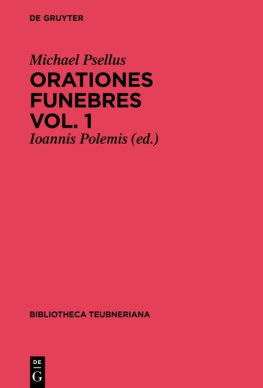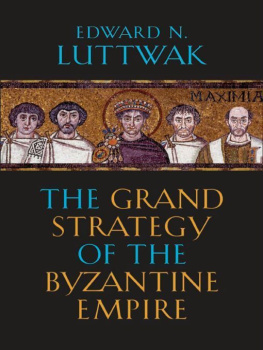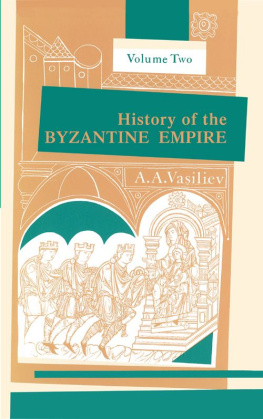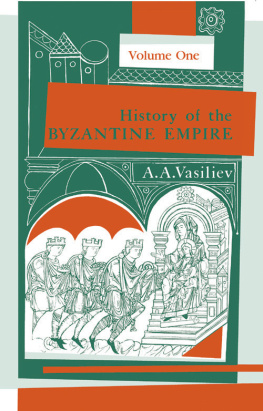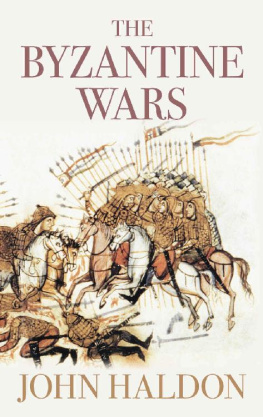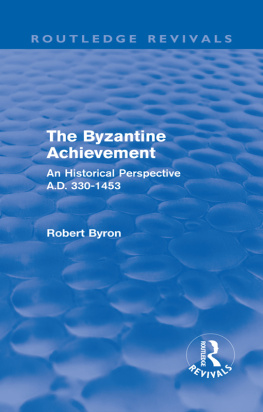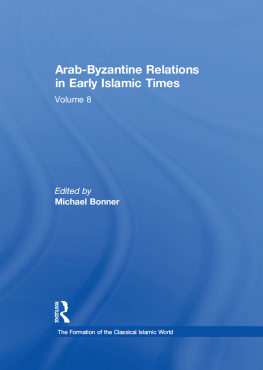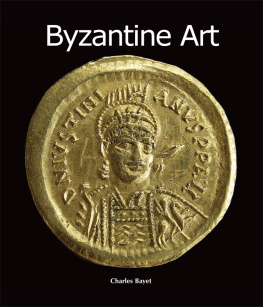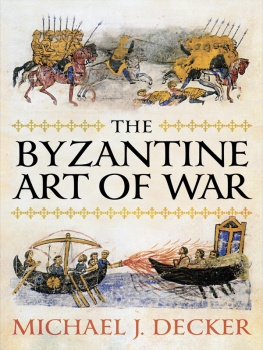Michael Psellus - Fourteen Byzantine rulers: the Chronographia of Michael Psellus
Here you can read online Michael Psellus - Fourteen Byzantine rulers: the Chronographia of Michael Psellus full text of the book (entire story) in english for free. Download pdf and epub, get meaning, cover and reviews about this ebook. year: 2010, publisher: Penguin Group USA, Inc., genre: Non-fiction. Description of the work, (preface) as well as reviews are available. Best literature library LitArk.com created for fans of good reading and offers a wide selection of genres:
Romance novel
Science fiction
Adventure
Detective
Science
History
Home and family
Prose
Art
Politics
Computer
Non-fiction
Religion
Business
Children
Humor
Choose a favorite category and find really read worthwhile books. Enjoy immersion in the world of imagination, feel the emotions of the characters or learn something new for yourself, make an fascinating discovery.
- Book:Fourteen Byzantine rulers: the Chronographia of Michael Psellus
- Author:
- Publisher:Penguin Group USA, Inc.
- Genre:
- Year:2010
- Rating:3 / 5
- Favourites:Add to favourites
- Your mark:
- 60
- 1
- 2
- 3
- 4
- 5
Fourteen Byzantine rulers: the Chronographia of Michael Psellus: summary, description and annotation
We offer to read an annotation, description, summary or preface (depends on what the author of the book "Fourteen Byzantine rulers: the Chronographia of Michael Psellus" wrote himself). If you haven't found the necessary information about the book — write in the comments, we will try to find it.
This chronicle of the Byzantine Empire, beginning in 1025, shows a profound understanding of the power politics that characterized the empire and led to its decline.
Michael Psellus: author's other books
Who wrote Fourteen Byzantine rulers: the Chronographia of Michael Psellus? Find out the surname, the name of the author of the book and a list of all author's works by series.
Fourteen Byzantine rulers: the Chronographia of Michael Psellus — read online for free the complete book (whole text) full work
Below is the text of the book, divided by pages. System saving the place of the last page read, allows you to conveniently read the book "Fourteen Byzantine rulers: the Chronographia of Michael Psellus" online for free, without having to search again every time where you left off. Put a bookmark, and you can go to the page where you finished reading at any time.
Font size:
Interval:
Bookmark:

FOURTEEN BYZANTINE RULERS
ADVISORY EDITOR: BETTY RADICE
MICHAEL PSELLUS (A.D. 101896), Byzantine philosopher, historian and man of letters, was born in Constantinople. An infant prodigy, he attracted the notice of important patrons and eventually entered the government service, and, as one short-lived emperor succeeded another, became extremely influential. Falling into disfavour on Constantine IXs death, Psellus for a time became a monk, but finding he had no vocation returned to court to resume a leading role in government, becoming chief minister of the empire under Michael VII Ducas.
Psellus was an intellectual giant, who, more than any other man, laid the groundwork for the 12th-century flowering of art, letters and science. Though there was no branch of knowledge which he did not explore, his main contribution was twofold: a new and deeper understanding of the Platonist, idealist tradition of ancient philosophy and a unique attention to style and elegance of expression. In addition, many of the succeeding generations most influential figures were his pupils.
His literary output was immense, and not all of it has been identified, let alone published. Pselluss work marks the first break in the old ChristianAristotelian synthesis which had provided the philosophical and intellectual framework for the Byzantine world since late antiquity; and his creative use of the classical literary heritage paved the way for stylists like Anna Comnena and Nicetas Choniates, as well as for the revived Lucianic satire of the 12th century.
E. R. A. SEWTER was a well-known Byzantine scholar and the editor of Greece and Rome. His translation of The Alexiad of Anna Comnena is also published in Penguin Classics. E. R. A. Sewter died in 1976.
The Chronographia of Michael Psellus
*
TRANSLATED,
WITH AN INTRODUCTION, BY
E. R. A. SEWTER
PENGUIN BOOKS
PENGUIN BOOKS
Published by the Penguin Group
Penguin Books Ltd, 80 Strand, London WC2R 0RL, England
Penguin Putnam Inc., 375 Hudson Street, New York, New York 10014, USA
Penguin Books Australia Ltd, 250 Camberwell Road, Camberwell, Victoria 3124, Australia
Penguin Books Canada Ltd, 10 Alcorn Avenue, Toronto, Ontario, Canada M4V 3B2
Penguin Books India (P) Ltd, 11 Community Centre, Panchsheel Park, New Delhi 110 017, India
Penguin Books (NZ) Ltd, Cnr Rosedale and Airborne Roads, Albany, Auckland, New Zealand
Penguin Books (South Africa) (Pty) Ltd, 24 Sturdee Avenue, Rosebank 2196, South Africa
Penguin Books Ltd, Registered Offices: 80 Strand, London WC2R 0RL, England
www.penguin.com
This translation first published by Routledge & Kegan Paul, UK,
and Yale University Press, USA, 1953
This revised edition published in Penguin Books 1966
22
Copyright E. R. A. Sewter, 1966
All rights reserved
Except in the United States of America, this book is sold subject
to the condition that it shall not, by way of trade or otherwise, be lent,
re-sold, hired out, or otherwise circulated without the publishers
prior consent in any form of binding or cover other than that in
which it is published and without a similar condition including this
condition being imposed on the subsequent purchaser
EISBN: 9781101491072
THE first edition of this book was published in 1953 by Routledge & Kegan Paul in London, and in the United States by Yale University Press. It appeared as The Chronographia of Michael Psellus in Rare Masterpieces of Philosophy and Science (edited by Dr W. Stark) a compliment which would surely have delighted Psellus himself. I have every reason to be grateful to the London publishers for their courtesy and forbearance; no English translation of the whole work had been attempted before in fact, only once had the Chronographia been rendered into any modern language, in mile Renaulds Bud version; ten years ago Byzantine studies were still regarded in some quarters with suspicion or even contempt; it was by no means certain that the book would sell. However, all went well and for some time now it has been out of print.
This second edition, although the text remains substantially unaltered, has been thoroughly revised. The notes have been simplified and where necessary amended. Maps and a brief glossary have been added. The bibliography has been brought up to date. In one important respect there has been a change of a more drastic nature: in Penguin Books it is customary for authors to write their own Introductions, whereas in the earlier edition I had not been required to do this, for Professor Joan Hussey, whose services to Byzantina have justly won the admiration of scholars all over the world, volunteered to carry out this task herself. Not only did she find time to do this, despite her many other duties, but she read the text, made valuable comments, supplied notes for the bibliography, and interested herself generally in the books production. To her I owe a great debt. If this volume contributes anything to our knowledge of eleventh-century Constantinople, I shall feel hat some part at least of that obligation has been paid. Others ave helped me by their encouragement and advice, notably. H. Barrow and W. F. Jackson Knight. The former has long exercised a beneficial influence on the teaching and study of he classics; the scholarship of the latter extends far beyond his avourite Virgil. Neither could have been expected to favour ioneer Byzantine research tanto magis libentissime gratias eddo.
It is proper, too, that tribute should be paid here to M. enauld. I have used the Greek text established by him and here were ample opportunities to observe and respect his cholarly approach. Nevertheless, our versions do differ coniderably. If mine does not meet with everyones approval I all derive some minor comfort from his admission that sellus is often utterly obscure: there are difficults insurontables.
Newbury, Berkshire
30 September 1964
FIFTY years ago any English schoolboy who professed admiration for things Byzantine would almost certainly have been reprimanded. The Golden Age of Athens, the fifth century before Christ, was the most profitable object of study, and Roman History was respectable enough up to the reign of Hadrian; after that (had not Gibbon said so?) there followed a period of decline and fall. The miserable Byzantines were pale reflections of decadent Greeks: their art was stereotyped, lacking in inspiration, and stiff; their form of government was static and inefficient, their literature debased. Byzantinus est, non legitur was the accepted maxim. The boys mentors probably never bothered to define the term Byzantine, which had long been pejorative, but in my schooldays (about that time) we knew vaguely that the ancient city of Byzantium had been founded by a Greek Byzas somewhere about 650 B.C., that it paid tribute to the Delian Confederacy, and that Constantine the Great made it the capital of the Eastern Roman Empire in the year 330 of the Christian Era. We were not encouraged to ask what happened to Rome itself; in fact, looking back on those faraway lessons on Roman History, one wonders if our teachers themselves knew or cared. Once, in an aside, we were told that the first and last rulers of Rome were called by the same name (with a contemptuous reference to Augustulus) and further inquiries were dismissed as irrelevant. Obviously something dreadful had occurred in the West two hundred years after Constantines foundation of his new capital, but many years were to elapse before my contemporaries seriously concerned themselves with the surviving half of the old Roman Empire. It was not even generally agreed whether East Romans or Byzantines was the correct title of its inhabitants, though most people thought of the Empire as definitely Byzantine from the time of Justinian to the capture of Constantinople by the Turks in 1453, a period of some nine hundred years. However ignorant we may have been, some of us did ask awkward questions: if they were so inferior, how did these wretched Byzantines manage to survive so long after the collapse of the West? and what about Santa Sophia? and wasnt a millennium rather a long time for a sustained decline?
Font size:
Interval:
Bookmark:
Similar books «Fourteen Byzantine rulers: the Chronographia of Michael Psellus»
Look at similar books to Fourteen Byzantine rulers: the Chronographia of Michael Psellus. We have selected literature similar in name and meaning in the hope of providing readers with more options to find new, interesting, not yet read works.
Discussion, reviews of the book Fourteen Byzantine rulers: the Chronographia of Michael Psellus and just readers' own opinions. Leave your comments, write what you think about the work, its meaning or the main characters. Specify what exactly you liked and what you didn't like, and why you think so.


